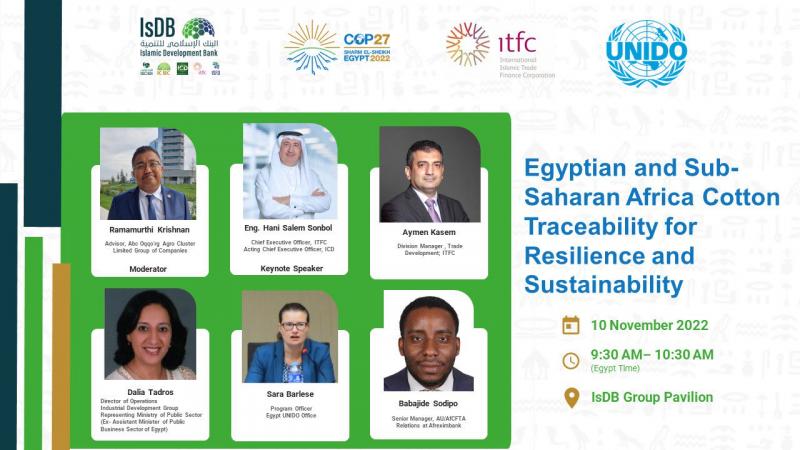
Egyptian and Sub-Saharan Africa Cotton Traceability for Resilience and Sustainability
Time & Date of Event
9:30 AM to 10:30 AM on Thursday, 10th of November 2022
Event Overview
The session will shed the light on the cotton traceability and its importance in the resilience and sustainability of the white gold. The cotton-textile and garments industry, specifically in Egypt and some sub-Saharan African countries, offer major potential for industrialization, exports and investments. The vertical integration of the cotton-textile value chain is an important asset. At the same time, given the justified risks that this industry may pose to the environment and to the social rights of workers, there is an increasing demand for a radical shift to responsible production and consumption patterns. It is therefore critical to set in place an enabling framework for companies operating in the country and the region, including for Small and Medium-Sized Enterprises (SMEs), with access to the right tools and skills-set to strengthen compliance with due diligence requirements along global and regional value chains
Taking stock of progress towards Egyptian cotton sustainability achieved by the UNIDO multistakeholder initiative “The Egyptian Cotton Project”, funded by Italy and ITFC, UNIDO is committed to continuing supporting concrete and scalable solutions to support the reduction and monitor the impact of Egyptian cotton-textile value chain on the climate change, to improve its performance and competitiveness as one of the most iconic industrial production in Egypt while preserving its environmental and social sustainability and inclusiveness for future generations.
Event Outcomes
The proposed side event will highlight what are the policies, practices, and processes that can actually push the pledges into action for enhancing traceability and transparency of the Sub-Saharan Africa and Egyptian cotton-textile value chain and allow a just transition towards a low-carbon, resource-efficient, and more circular economy.